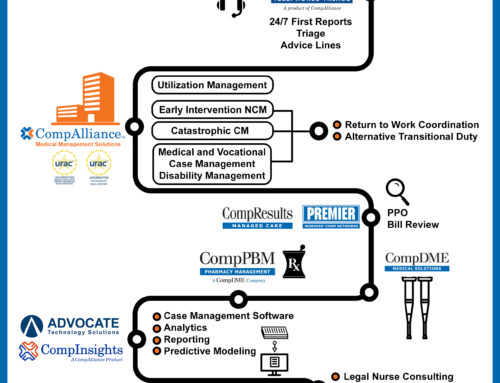Article submitted by Jean S. Goldstein, JD, Senior Legal Counsel, MSP Compliance, MEDVAL
Last July, the Centers for Medicare & Medicaid Services (CMS) released a revised Workers’ Compensation Medicare Set-Aside (WCMSA) Reference Guide. This guide is essentially the go-to-resource, for everything WCMSA related when choosing to submit a WCMSA to CMS through its voluntary review program. Among one of the many revisions found within the guide, was the inclusion of the following statement:
“[a]lthough beneficiaries may act as their own administrators, it is highly recommended that settlement recipients consider the use of a professional administrator for their funds.” (emphasis added.)
For those unfamiliar with the process, once a WCMSA (whether reviewed/approved by CMS or not) is established, the total WCMSA amount must be placed into an interest-bearing account, separate from any other personal accounts. From this account, an injured worker must pay for all Medicare-covered services and treatment related to the work injury, and provide CMS with a yearly reporting of these expenditures.
The WCMSA account must be appropriately exhausted before Medicare will begin to pay for care related to the industrial injury. There are two options for administration of an established WCMSA account: self-administration and professional administration. Self-administration requires an injured worker to manage the payments, manage the arrangements for payments, and accounting on their own. Professional administration involves a third party taking over the injured worker’s role of administering the MSA.
While MEDVAL offers some basic self-administration assistance to injured workers, professional administration is also one of the Medicare Secondary Payer (MSP) Solutions that we provide. In reviewing the above statement found within the revised CMS guide, it is crystal clear that CMS has endorsed professional administration.
The reasoning behind the endorsement is obvious to anyone who has ever struggled with balancing a checkbook. Add in navigating payment arrangements with medical providers, determining whether treatment is Medicare-covered (and which treatment is not), on top of submitting an annual accounting attestation form to CMS – and it is no wonder CMS has “highly recommended” professional administration.
The administration of a WCMSA can be a very daunting and overwhelming task for an injured worker. Moreover, the overarching concern of an injured worker spending WCMSA funds inappropriately, and Medicare being forced to pay prematurely, is one which is always present. That’s where professional administration comes into play- the injured worker obtains the medical treatment they need; and the professional administrator handles all the administrative burdens.
Professional administration is not just limited to WCMSA accounts. MEDVAL’s professional administration services can also be utilized for open medical claims, known as Medical Custodial Administration. These open claims are typically cases where indemnity has been settled, but the future medical component remains open; meaning an adjuster continues to pay for medical services. In these cases, just as with professional WCMSA administration, MEDVAL acts as an objective third party responsible for medical and pharmacy expenses (which includes Medicare covered and non-Medicare covered treatment).
Medical Custodial Administration is essentially the management and allocation of funds after a settlement, allowing an injured worker to continue to treat as necessary, while simultaneously allowing for reduction of costs and time in closing the carrier’s file.
The bottom line is that professional administration is an MSP solution to ensure funds are spent appropriately, while removing the administrative burdens an injured worker, or adjuster, would otherwise be faced with. For questions and referrals regarding our professional administration services, please contact our team at: custodial@medval.com.
____________________________

